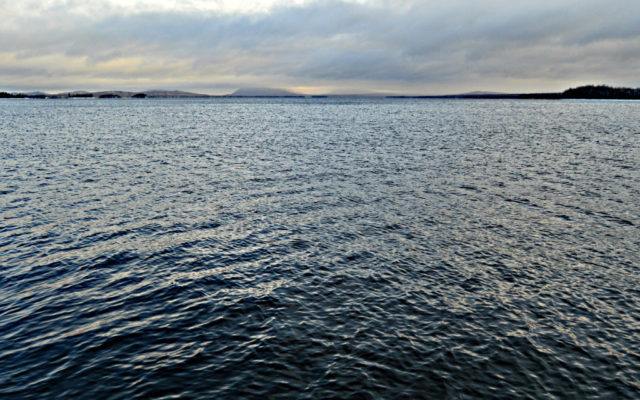
Maine wants anglers to catch more bass in northern half of state
By Pete Warner, Bangor Daily News Staff
The head of the state’s inland fisheries and hatcheries on Tuesday rolled out several proposed fisheries rules changes for 2024 during the regular meeting of the Maine Department of Inland Fisheries and Wildlife Advisory Council in Augusta.
Francis Brautigam outlined a proposed streamlining of Maine’s fishing rules regarding bass, changes with two State Heritage Fish Waters, and an added regulation to protect sea-run Atlantic salmon in a Hancock County pond, among several desired modifications and clarifications.
In an effort to enhance its efforts to regulate bass in the North Zone, DIF&W proposes eliminating special regulations that exist on 14 waters.
Bass, which are managed as a sport fish in the South Zone, are considered an invasive species in the North Zone, where coldwater sport fish, including native species, are more prevalent. Thus, the state wants to take away any rules that might give the impression it supports the proliferation of bass in the North Zone.
Bag limits and minimum size restrictions for bass would be eliminated for those 14 waters in the northern half of the state.
“Invasives are managed by the department so as to not promote, popularize or enhance their sportfish value,” Brautigam said.
Thus, any rules in place designed to help bass populations are deemed inconsistent with DIF&W’s efforts to manage them as invasive in the North Zone.
“That’s the goal, to create some synergy with our strategic plan and our approach to managing bass as a popular sport fish in the southern part of the state but to continue to manage them as an invasive species in the northern part of the state. We have a lot of native wild brook trout and salmon populations,” Brautigam said.
DIF&W has designated two waters as being in special need of law changes to protect species contained therein.
The first is Burnt Land Lake in East Hancock, where the state believes there is a need to increase the maximum allowable length on salmon and brown trout to 25 inches. Imposing the S-33 regulation would be designed to prevent anglers from inadvertently harvesting a sea-run Atlantic salmon, which are able to access the lake via the Machias River watershed.
“We use that S-33 around the state on waters where our resident salmon and our resident brown trout do not exceed 25 inches, so if you happen to get a fish that looks like a brown trout or a salmon, it’s probably a sea-run salmon,” Brautigam said. “There was a sea-run salmon that was caught there last year, so that’s what prompted this rule change.”
Moosehead Lake also is targeted for clarification of a rule. The state wants to stress that open water fishing is also prohibited in areas that are closed to winter angling.
This is an effort to protect brook trout spawning and staging areas that are closed to ice fishing, but also should remain closed to fishing if waters fail to freeze at certain times during the ice fishing season.
In an effort to end confusion about which zone certain waters are in, the state proposes categorizing four lakes that straddle the North/South line as being in the South Zone.
Those waters include East Grand Lake in Washington and Aroostook counties, Carlton Pond (Waldo), Sucker Lake (Washington) and Crowell Pond (Franklin/Kennebec).
That means that all fishing regulations governing those waters will fall under the South Zone framework.
However, because East Grand does support a brook trout fishery, DIF&W proposes that the lake, which is now in the North Zone, retain its five-fish bag limit for brookies.
The state also has put forth a plan for two State Heritage Fish Waters. Those are brook trout and Arctic charr waters where populations are self-sustaining and either have never been stocked or have not been stocked for 25 years.
It plans to remove Beck Pond in Somerset County from the list and to add Big Indian Pond in Piscataquis County to its protected waters.
Beck Pond was studied by DIF&W in the 1950s and then later stocked by the department and a private club. The state returned in 2007 and in 2022 and has not been able to locate any brook trout. A slate of special fishing regulations also will be removed.
Big Indian Pond was last stocked in 1997 and supports a popular brook trout fishery that moving would be governed by State Heritage Fish Waters rules.
All of the DIF&W proposals pertaining to fishing will be made public on Wednesday and must then go through the normal process, including a public hearing on July 10, before being reconsidered for adoption.